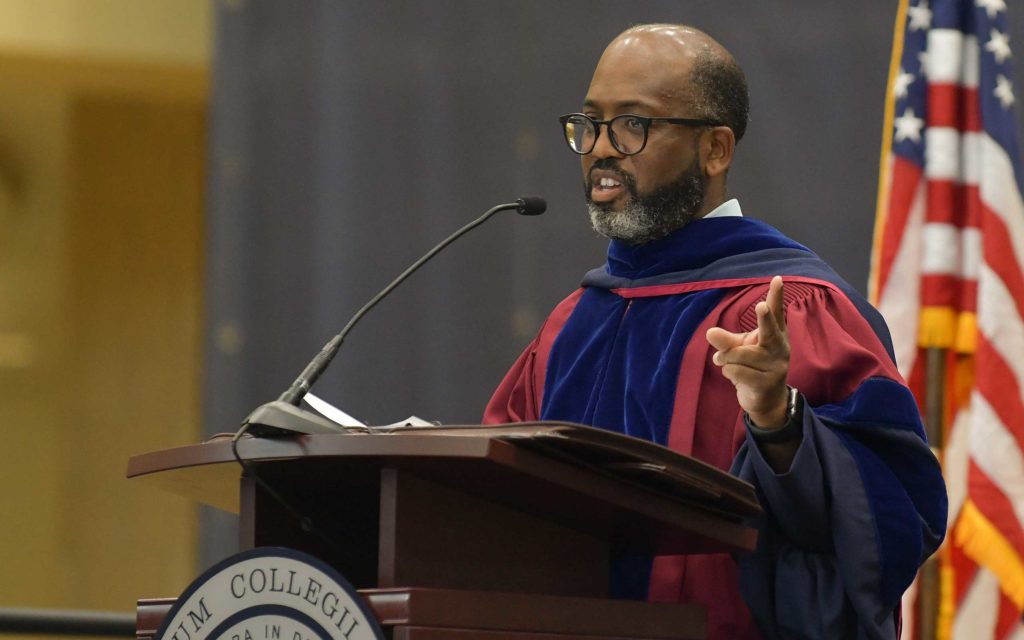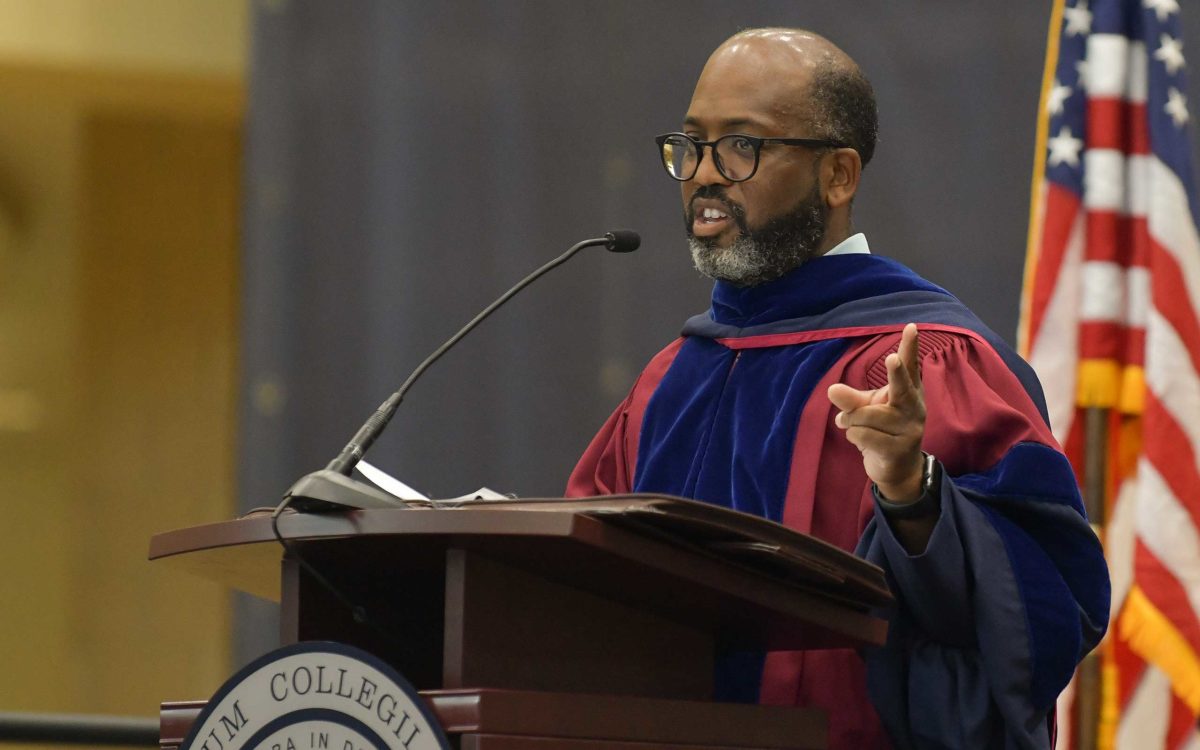Quote Unquote: Convocation 2021

The members of the incoming Class of 2025 were encouraged to “Listen to the Empty” during the college’s Opening Convocation on Sunday, Aug. 29, at the Richard and Helen DeVos Fieldhouse.
“Put simply, I am asserting that there is much more power and potential in the unknown compared to the known. The empty, if you will, is the space where you will more fully develop — recognizing what you do not know, embracing what you do not know, and collaborating with your peers, faculty and staff as you sit in the empty,” said speaker Dr. Gerald Griffin, who is interim provost and an associate professor in the departments of biology and psychology.
“Our newest Hope family members, you are entering a time when conflict, derision and division are quite high — in fact, I’d say they’ve been celebrated. Simultaneously, harmony and empathy feels quite low and is often scorned as weak or noncommittal,” he said. “Commit to listening to the empty — commit to seeking God’s understanding and not leaning on your own — commit to learning about as much of God’s world and God’s people as you can.”
The Opening Convocation is the formal beginning of the academic year, this year the 160th at Hope, and takes place during the college’s New Student Orientation. With the students in the midst of their multi-day introduction to college life and the imminent arrival of the first day of classes, Griffin acknowledged that “empty” might seem an unlikely concept. “After days of moving in, meeting new people during orientation and preparing for advising tomorrow… and as you begin also to prepare for the start of classes on Tuesday — life probably feels anything but empty,” he said.
Commit to listening to the empty — commit to seeking God’s understanding and not leaning on your own — commit to learning about as much of God’s world and God’s people as you can.
The trend, he said, will only continue as the students’ time at the college progresses with more than 1,000 classes from which to choose each semester, nearly 300 instructors, approximately 80 co-curricular activities, off-campus study opportunities and numerous community organizations about which to learn.
The empty, Griffin told the students, will help them make the most of what the myriad experiences have to offer. He considered the importance of the silences around which musicians build music, or the power of a pause to create energy and passion in writing or oratory. More fundamentally, he reflected on the creation story in Genesis, in which God brings all into being from the void.
“Knowing that God’s majesty is perfected in the empty, I’d like to give you a serious piece of advice: and that is each day to carve out just a little time, if you will, to be with God in the quiet. Have time when you can be still and come to God empty — no agenda, no requests; just come to Him empty. Wait for Him to fill you as perfectly, uniquely, divinely as only He can,” Griffin said.
As the college’s chief academic officer, Griffin brought attention in particular to the students’ forthcoming coursework and the potential to be found in facing challenges.
“One way you may encounter the empty is even through your courses. Your instructors will craft and give you assignments in which you may not know all the answers,” he said. “Too often, we run away from things that make us uncomfortable; we flee from subjects we deem we ‘aren’t good at.’ Have a growth mindset — recognize those subjects or disciplines that we feel are our weakest, can be sources of strengths — canvases waiting for God’s powerful, majestic artwork.”
Please visit the college online for a photo gallery from Orientation Weekend as well as the full text of the address.

